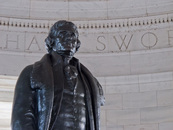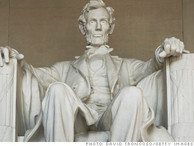 Sometimes a person offers an insight that is more profound than intended, even if it pretty remarkable on its own. My favorite example is from the Declaration of Independence. When Thomas Jefferson held this truth to be self-evident, “all men are created equal,” he could not have been aware that eventually it would do away with slavery, give women the vote, lead to the Voting Rights Act, result in the Americans with Disabilities Act and underpin the Lilly Ledbetter Act. But it did. On the other hand, sometimes a profound insight has a limiting effect. In 1996, James Carville encouraged the members of the (Bill)) Clinton campaign team to stay focused on three basic messages. One of them was “The economy, stupid,” later to become “It’s the economy, stupid.” The emphasis on economic concerns, usually reduced to jobs and taxes, has gotten in the way of more nuanced and sophisticated discussions of complicated issues in subsequent campaigns. This 2016 presidential campaign is no different in that respect. The contest to capture disaffected voters has focused from the beginning on jobs and taxes. Immigrants are taking our jobs. Wall Street is not paying its fair share of taxes. Globalization has destroyed formerly dependable employment. The infamous 1% controls it all. Many is the time I looked for a phrase that would capture my discomfort with placing a dollar value on what constitutes the United States and its blessings. And then I discovered it. The phrase is this: A country is more than an economy. I will leave it to you in the end to decide whether the context is profound or limiting. I guess it depends on how it is applied. There is no economic value to many of our freedoms. Yes, a clever advocate can make the case that the long-term neglect of certain kinds of regulation would a negative impact down the road, but most of the basic freedoms in the Bill of Rights that undergird our civil society are not economic in nature. An unfettered press does not necessarily create more jobs than a controlled one, even if “free” in this case does not mean without cost. But people have not immigrated to America seeking easy prosperity. Go to Hong Kong or a country moving from communism to free market for that. Go to Sweden or England for social welfare. Housing, food, transportation, higher education – all of them are cheaper somewhere else. It is the context of America that people are seeking when they come here. When my Jewish ancestors came from Eastern Europe, they were indeed seeking the “goldene medinah,” the Golden Land. Maybe they thought the streets were paved with gold, but they discovered what the 17th-century European migrants accidentally created: the land of the free. They discovered that a country is more than an economy. In spite of their initial poverty, in spite of the resident bigotry they encountered, they mostly never decided they made a mistake. No one in my family ever went back. And that’s the America they bequeathed down the generations to me. It is the one that measures the goodness of a societal trend by how many more kinds of individuals are welcomed into the tent of civil rights derived from self-evident truths and unalienable human rights that formed the foundation on which rest the blessings of liberty. A country is more than an economy. So it is a little frightening to know where I discovered this phrase. It comes from Stephen Bannon who was, until last week, running Breitbart (a very right-wing media company) and hosting a morning radio talk show for them. Since last week, he is charge of Donald Trump’s campaign for President. And this conversation reportedly took place on his morning show during the primary season: Last year, in a November interview with Bannon, Trump regretted the loss of a worker who took his skills back to his native India. “We’ve got to be able to keep great people in the country,” Trump said. “We have to be careful of that, Steve. I think you agree with that, Steve?” Bannon did not. “A country is more than an economy,” he retorted. “We are a civic society.” In a nut shell, Mr. Bannon’s comment sums up both the ethos of the campaign he hopes to run and the decision each voter has to make. The last word in the Trump campaign slogan – again – casts a longing glance back to a time when presumably white Protestant men were in charge. You could be any race, religion or ethnicity, as long as it (at least seemed) white and Protestant. And you could be either sex, except one. In fairness, that’s the goldene medinah in which my great-grandparents landed. It worked pretty well for many white Protestant men, like Mr. Trump. Until that tent expanded (and still in many ways) it didn’t work quite as well for anyone else. Promising people the chance to earn more money, the vocabulary of business people looking for investors, has nothing to do with expanding the tent. A country is more than an economy. If there is a continuing lesson for me in this political season it is how much “traditional Republicans” love this country and what it must become. The disruptors on the left, as much as on the right, hold to a fantasy that serves themselves to the disadvantage of others. The America that is a zero-sum game is one that preserves or bestows privilege. The civic society that operates, as some Republican once said, with malice toward none and charity toward all, is the one that expands the opportunities that keep us moving forward. Some of that has to do with jobs and taxes. But a country is more than an economy.
0 Comments
Leave a Reply. |
Archives
March 2023
Categories |

 RSS Feed
RSS Feed
